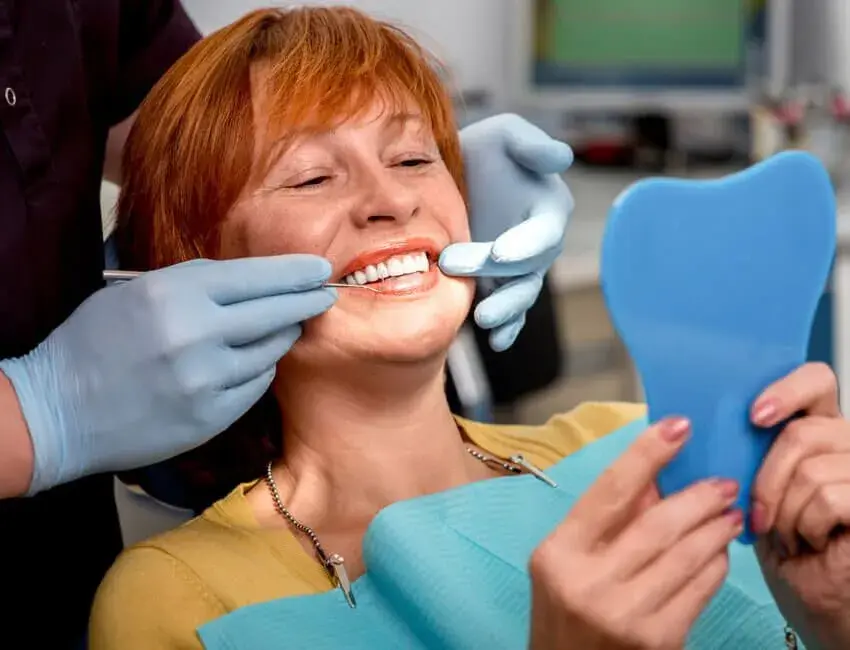Denture Fit: Achieving a Comfortable and Secure Smile

When it comes to wearing dentures, achieving the perfect denture fit is essential for comfort and confidence. A proper denture fitting process ensures that your dentures not only look natural but also function well, allowing you to eat, speak, and smile without discomfort. However, many individuals experience issues like loose dentures, denture discomfort, or ill-fitting dentures, which can lead to frustration. In this comprehensive guide, we’ll explore how to ensure a comfortable denture fit, highlight the denture fitting process, and provide valuable tips to resolve common denture fit issues.
The Importance of a Proper Denture Fit
A proper denture fit goes beyond aesthetics. It is vital for:
- Comfort: Well-fitted dentures eliminate sore spots and gum irritation.
- Functionality: Dentures should enable you to chew and speak effectively.
- Retention: Secure dentures prevent embarrassing slippage during social interactions.
Whether you need full dentures, partial dentures, or custom dentures, a proper denture fit enhances your overall quality of life.
Denture Fitting Process: Step-by-Step Guide
The denture fitting process involves several stages to ensure a custom and comfortable fit. Here’s what to expect:
- Initial Consultation and Evaluation
The process begins with a thorough examination by your dentist. They will evaluate your gums and the overall structure of your mouth to determine the type of dentures that suit your needs. If you’re transitioning from natural teeth to dentures, your dentist will plan any necessary extractions at this stage. - Taking Impressions
Your dentist will take impressions of your gums and any remaining teeth (for partial dentures). These impressions serve as a mold for creating your custom dentures. - Creating the Dentures
Using the impressions, a dental lab crafts your custom dentures. This process can take several weeks, during which temporary dentures may be provided. - Fitting the Dentures
Once your dentures are ready, the fitting process begins. Your dentist will place the dentures in your mouth and check for proper alignment, bite, and comfort. If needed, they’ll make adjustments to ensure a comfortable fit. - Adjusting for Comfort
Over time, your gums and bones may change shape, especially if you have had teeth extracted recently. Therefore, you may need additional adjustments to maintain a proper fit. This is normal and part of ensuring a long-lasting, comfortable denture fit.
Common Denture Fit Issues
Even with a professional fitting, some common denture fit issues may arise. Here are a few examples:
- Loose Dentures: Over time, your jawbone can shrink, causing dentures to become loose. This can lead to slipping or difficulty in chewing.
- Denture Discomfort: Ill-fitting dentures can cause sore spots, pain, or even infection in the gums.
- Difficulty Chewing or Speaking: Misaligned dentures can impact your ability to chew food or speak clearly.
If you experience any of these issues, it’s important to consult your dentist. Often, simple adjustments can resolve the problem.
Denture Adjustment and Relining
Denture Adjustment
If you experience denture discomfort, adjusting your dentures for comfort is essential. Regular check-ups with your dentist ensure that minor issues like pressure points or sore spots are addressed before they worsen. Denture adjustments are common and may be needed periodically as your mouth changes.
Denture Relining
When dentures become loose due to changes in your gums or bone structure, denture relining is a common solution. There are two types of relining:
- Soft Relining: This is ideal for individuals with sensitive gums or sore spots. A soft, pliable material is used to reline the dentures, making them more comfortable.
- Hard Relining: A more durable option, hard relining uses a firmer material to fill the gap between your dentures and gums. This helps ensure better retention and a secure fit.
Relining can extend the life of your dentures and make them more comfortable, avoiding the need for new dentures.
Full Denture Fit vs. Partial Denture Fit
The fitting process can differ between full dentures and partial dentures:
- Full Denture Fit: Full dentures replace an entire set of missing teeth, either on the upper or lower jaw. Since they rely on suction and the shape of your gums, achieving a snug fit is crucial to avoid slippage.
- Partial Denture Fit: Partial dentures replace only a few missing teeth and are anchored to your remaining natural teeth with clasps. Achieving a secure fit for partial dentures requires careful adjustment to avoid excess pressure on your natural teeth.
Denture Fitting Tips for a More Comfortable Experience
- Practice Speaking and Eating: New dentures may feel awkward at first. Practice speaking and chewing soft foods to become more comfortable.
- Use Denture Adhesive: For added security, denture adhesive can provide extra stability, especially when eating or talking.
- Maintain Good Oral Hygiene: Clean your dentures daily and care for your gums to prevent infections and keep your mouth healthy.
- Visit Your Dentist Regularly: Regular check-ups ensure that any denture fit issues are addressed promptly.
Custom Dentures: Tailored for Your Needs
Custom dentures are designed to fit the unique shape of your mouth, providing greater comfort and better functionality compared to standard, pre-made dentures. They are crafted based on detailed impressions and offer a more precise fit. While they may come at a higher cost, custom dentures often provide a superior fit and greater longevity.
Conclusion
A proper denture fit is essential for your comfort, oral health, and confidence. The denture fitting process involves careful steps to ensure a snug, secure fit, but even after this process, you may encounter issues like loose dentures or discomfort. By understanding the importance of denture adjustments, relining, and maintenance, you can enjoy comfortable dentures for years to come. If you’re struggling with denture fit issues, consult with your dentist to explore the best solutions for your needs.
FAQs
1. How can I tell if my dentures don’t fit properly?
If your dentures feel loose, cause pain, or you experience difficulty speaking or chewing, it’s a sign they may not fit properly.
2. How often should I have my dentures adjusted?
You should visit your dentist for adjustments at least once a year or sooner if you experience discomfort or looseness.
3. Can dentures be relined at home?
It’s recommended to have dentures professionally relined by a dentist to ensure proper fit and avoid damaging them.
4. How long does it take to get used to new dentures?
It can take several weeks to a few months to fully adjust to new dentures. Practice speaking and eating to speed up the process.
5. What should I do if my dentures cause sore spots?
Consult your dentist for an adjustment. Sore spots are common with new dentures but should be addressed promptly.






